





Stages of A Criminal Trial and Constitutional Principles Of Law – Summary
It is critically important to understand that in our criminal justice system, unlike many others around the world, the defendant is innocent until proven guilty. This foundational assumption is a core principle established by the United States Constitution. It underscores every aspect of a criminal case.
United States Constitution—Bill of Rights
The Fourth Amendment
The right of the people to be secure in their persons, houses, papers, and effects, against unreasonable searches and seizures, shall not be violated, and no warrants shall issue, but upon probable cause, supported by oath or affirmation, and particularly describing the place to be searched, and the persons or things to be seized.
The Fifth Amendment
No person shall be held to answer for a capital, or otherwise infamous crime, unless on a presentment or indictment of a Grand Jury, except in cases arising in the land or naval forces, or in the militia, when in actual service in time of war or public danger; nor shall any person be subject for the same offense to be twice put in jeopardy of life or limb; nor shall be compelled in any criminal case to be a witness against himself, nor be deprived of life, liberty, or property, without due process of law; nor shall private property be taken for public use, without just compensation.
The Sixth Amendment
In all criminal prosecutions, the accused shall enjoy the right to a speedy and public trial, by an impartial jury of the State and district wherein the crime shall have been committed, which district shall have been previously ascertained by law, and to be informed of the nature and cause of the accusation; to be confronted with the witnesses against him; to have compulsory process for obtaining witnesses in his favor, and to have the assistance of counsel for his defense.
State Law / Preemption -The United States Constitution is the supreme law of the land, and preempts (overrides or “erases”) any inconsistent State or local law. So, no State or local government can diminish the rights guaranteed by the United States Constitution. On the other hand, every State is free to adopt laws that expand the rights of individuals (suspects/defendants) beyond those guaranteed by the United States Constitution. This is true for all 50 States.
We sometimes hear news reports of decisions of the United States Supreme Court stating that certain police actions have been upheld as constitutional. However, law enforcement and prosecutors, indeed the citizenry of each State, must realize that even though the police actions passed muster under the United States Constitution, they may still run afoul of a State law as interpreted by that State’s courts and thus not be allowed by that State.
On the other hand, if the United States Supreme Court issues a decision stating that a particular police action is unconstitutional under the United States Constitution, the decision is automatically binding on police everywhere, even if some State court decision or statute purports to allow the police action.
In light of the constitutional principles discussed above, it may be necessary for a witness to testify more than once in the same case.
The following chart details the chronology of a criminal case:
The Stages of a Criminal Case
Felony – Misdemeanor
Stop -Temporary detention of an individual for investigation. To be legal, a stop must be based on reasonable suspicion to believe the individual has committed, or is about to commit, some violation of the law. If the stop yields information to confirm the suspicion, the stop may escalate into an arrest.
Arrest – Taking a suspect into custody for the purpose of prosecution on a criminal charge. To be legal, an arrest must be based on probable cause—a belief that it is more likely than not that the suspect has committed an offense.
Booking -The process of officially recording an arrest. It typically includes
(1) photographing the defendant (i.e., taking a “mug shot”),
(2) fingerprinting the defendant, and
(3) obtaining pedigree information (name, address, date of birth, etc.) from the defendant.
Advisement – The initial appearance of the defendant in court to answer the charges in an accusatory instrument. At the advisement, the judge:
(1) provides the defendant with a copy of the accusatory instrument,
(2) advises the defendant of the right to counsel and arranges for counsel to be provided without cost if the defendant is indigent, and
(3) considers the matter of bail.
Preliminary Hearing (Felony Hearing) – A defendant who is arrested on a felony charge and held in jail has the right to an impartial testing of the evidence within a certain, relatively short time frame (30 days) after arrest. “Prelims” are also provided in class 1, 2 and 3 felonies even if the defendant is not in custody.
Discovery – A pre-trial stage where the parties exchange information about the evidence and arguments they will offer at trial. In Colorado, the burden of supplying discovery information rests almost entirely upon the prosecution. This is because the presumption of innocence and the privilege against self-incrimination generally permit a defendant to remain silent throughout the prosecution.
Pre-Trial Motions & Hearings – A motion is a request by which a party (prosecution or defense) asks a judge to issue an order. For example, in criminal cases, pre-trial motions by defendants commonly include motions for dismissal of the indictment and for suppression of evidence.
Trial – A trial determines the question of the defendant’s guilt. The verdict of the jury is either “guilty” or “not guilty” on each charge given to the jury for determination. Experts involved in a case will testify at this stage
Post-Conviction and Post-Judgment Motions Post-conviction and post-judgment motions are used to attack guilty findings. As part of these motions the defendant may seek an evidentiary hearing to bring to light facts not litigated during the trial.
Sentencing – The imposition of punishment by the judge following a conviction. The range of possible sentences depends on the level of the offense committed.
Appeal – A review by a higher court of the correctness of legal proceedings in a lower court. If the conviction is overturned on appeal, the case starts all over again – and witnesses may be called to testify at a new trial as if the previous trial never occurred.
Other Articles of Interest:
- Common Defenses To Colorado Criminal Charges
- Colorado Criminal Defense Tactics – Should I Choose A Judge Trial Or A Jury Trial?
- Colorado Criminal Law – Replacing – Substituting Your Lawyer – Can They Stop Me From Firing My Old Lawyer And Retaining A New Lawyer
- Colorado Sentencing Hearings – Colorado Criminal Tactics – What Happens At A Sentencing Hearing?
- Colorado Criminal Restitution Law – A Continuing Right To Increase The Amount?






















